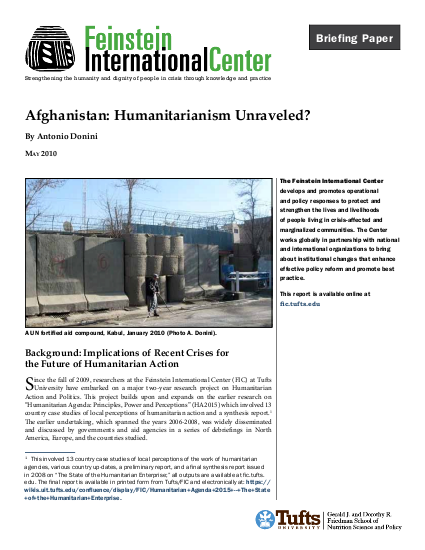Implications of Recent Crises for the Future of Humanitarian Action

Humanitarians have been following events in Afghanistan with growing apprehension. The viability of time-tested approaches to address the assistance and protection needs of at-risk groups are under threat, both from attempts to incorporate humanitarian players into partisan political agendas and by the targeting of aid workers by non-state actors. An additional concern relates to the way the UN mission has positioned itself and the implications of taking sides, and being seen as taking sides, for the humanitarian system’s ability to address humanitarian need in Afghanistan. But Afghanistan is not unique: there is a widespread feeling that developments in other crises are also challenging the fundamentals of humanitarian action. In Sudan, Sri Lanka, Somalia, and Pakistan, the mixing of disparate agendas under the banner of peace-making or peace-building and attacks against aid workers by non-state actors have resulted in the shrinking of humanitarian space, with deleterious consequences for principled humanitarianism and for the collective ability of aid agencies to assist and protect vulnerable groups.